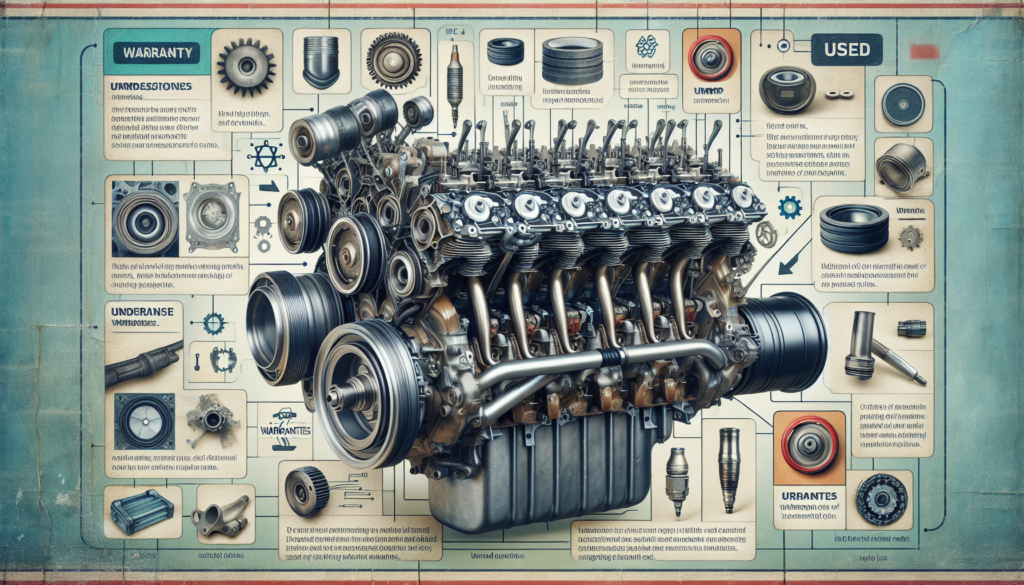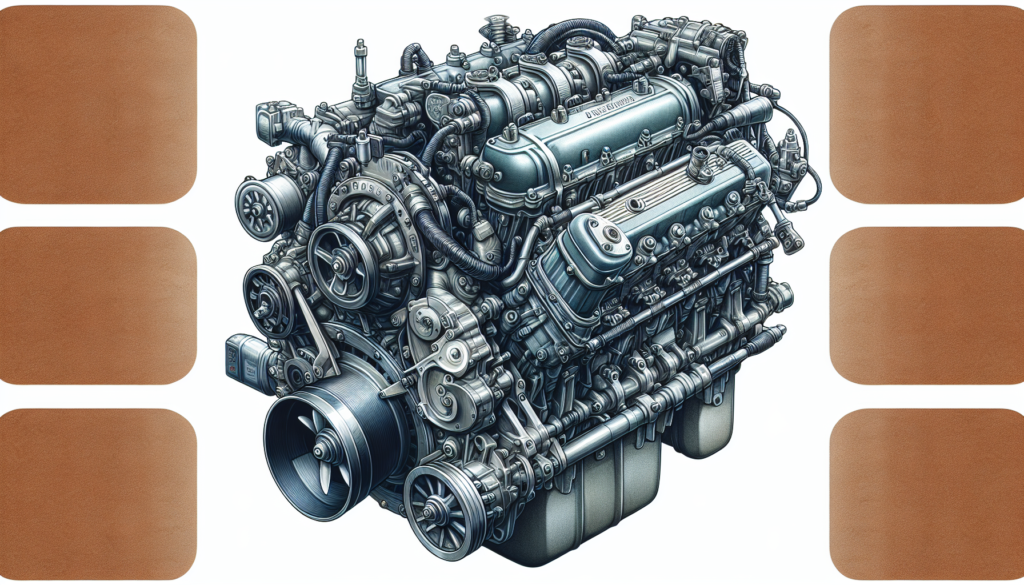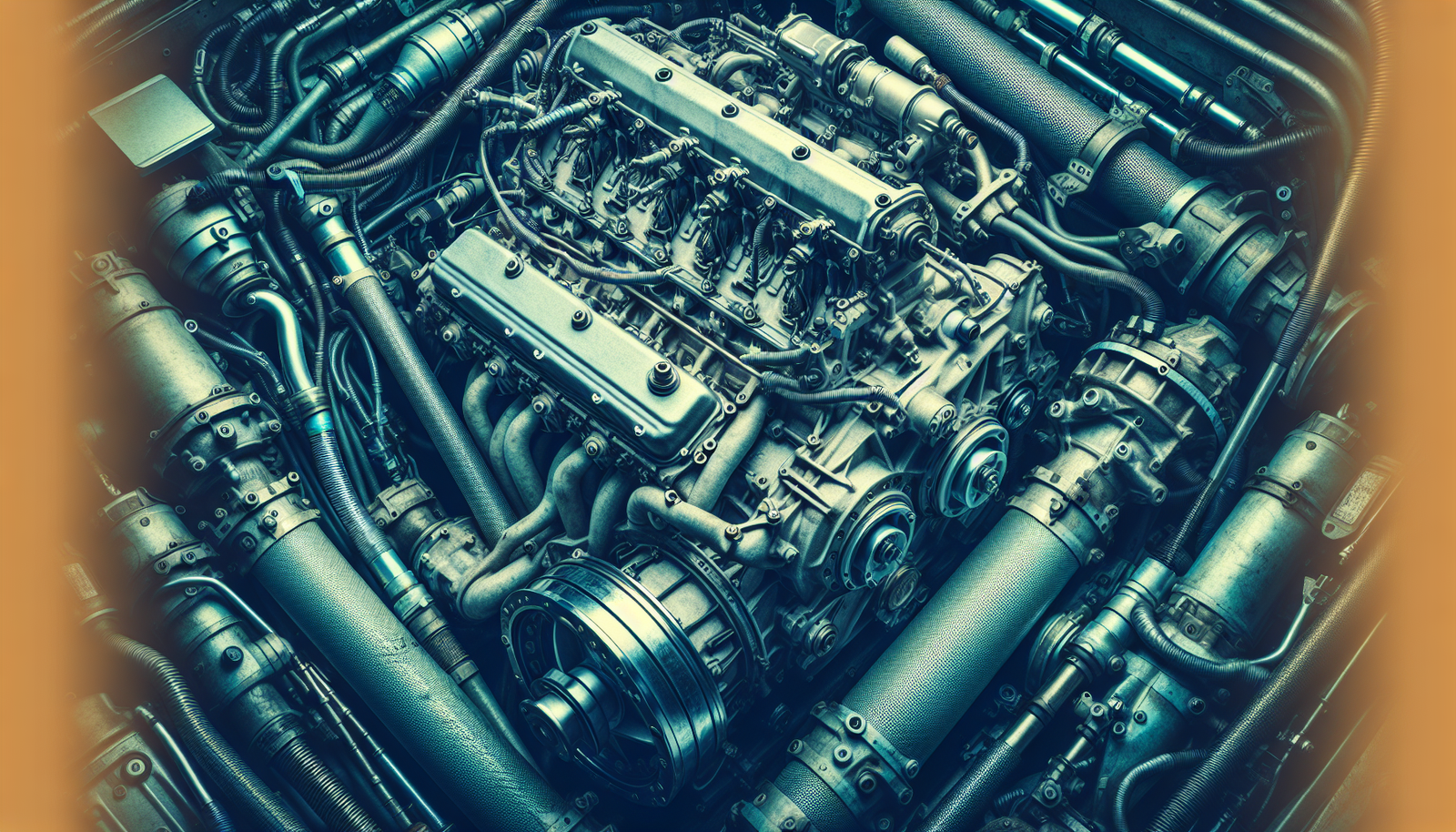Navigating the world of used boat engines can be murky territory if you’re not armed with the right knowledge. In this article, you’ll discover critical tips and insights to make a confident and informed purchase. Covering everything from the type of engine that best suits your boating needs to evaluating the condition of a used engine, you’ll learn how to avoid the common pitfalls that could leave you adrift. “Buying Used Boat Engines: What You Need to Know” is your guide to smooth sailing in the secondary market for boat engines.

Understanding the Types of Boat Engines
Boating is an incredibly versatile pastime. Whether you’re into fishing, waterskiing, cruising, or sailing around the world, there’s a boat and an engine out there that’s perfect for you. With the right engine, your boat will propel you smoothly towards your favorite activities and destinations. There are four basic types of boat engines – inboard, outboard, sterndrive (inboard/outboard), and jet engines.
Inboard Engines
Inboard engines are nestled within the boat, and they’re connected to a drive shaft that runs through the bottom of the hull to the propeller. This engine type is typically found on larger boats, as they’re more powerful and can handle bigger loads. They’re quite economical in terms of fuel consumption and are valued for their noise and vibration mitigation.
Outboard Engines
Unlike inboards, outboard engines are mounted outside the boat on the transom. They make up the most common engine type found on small to medium boats. These engines are lightweight and easy to maintain, and they provide plenty of power for their size. Plus, tilting them out of the water when not in use can help prevent corrosion and propeller damage.
Sterndrive (Inboard/Outboard) Engines
These engines are hybrids. They’re placed inside the stern of the boat like an inboard engine but have a drive unit connected to the rear, similar to an outboard engine. This blend offers a great balance between performance and interior space and provides a neatly low-profile exterior. Sterndrive engines are popular in many types of mid-sized boats.
Jet Engines
Jet engines work by sucking water into the boat and forcefully ejecting it out of the back, thereby propelling the boat forward. These engines are generally found on personal watercraft and jet boats and are well-liked for their shallow draft and absence of a spinning prop, which enhances safety for activities like wakeboarding or swimming near the boat.
Key Factors to Consider When Buying Used Boat Engines
Buying a used boat engine can be a tricky process. You need to balance cost savings with potential risks and make an informed decision. Here are six key factors you should consider.
Engine Age and Condition
The age and condition of the engine are critical to your decision. An old engine might be worn out, but a newer one poorly maintained might be just as unreliable. Look for signs of rust, leaks, or damage. You should also consider how many running hours an engine has.
Brand and Model
Not all engines are the same. Reliability, performance, and fuel efficiency can vary considerably between brands and models. Research and pick an engine that aligns best with your needs.
Engine Power
Pick an engine with just the right amount of power for your boat. Too little and the boat will labor to move. Too much, and you’re wasting fuel and adding unnecessary stress to the hull.
History of Maintenance and Repairs
A well-documented history of routine maintenance and repairs provides visibility into the engine’s past. This information can provide valuable insights about how the engine was taken care of and what kind of problems you might expect.
Price
While you might be looking for a bargain, don’t merely jump at the lowest price you can find. Often, you get what you pay for, so consider other factors, too.
Potential Hidden Issues
A used engine may come with unexpected problems. Be alert to potential hidden issues, and consider getting an expert examination before sealing the deal.

Assessing the Condition of the Used Engine
Once you’ve narrowed down a few potential options, you’ll want to assess the condition of each engine. Are they in good working order? Let’s see what you should look out for.
Physical Checks
Physically inspect the engine. Look for visible signs of wear and tear, such as rust, leaks, or damaged parts. Visually inspect hoses, belts, and wiring for any signs of deterioration.
Test Drive
If possible, take the boat out for a test run. This way, you get a clear idea of how the engine performs when in operation.
Running the Engine at Different Speeds
Monitor how the engine performs at all speeds. Listen for irregular sounds and observe the engine’s stability under different loads.
Checking the Compression
Conduct a compression check to ensure the engine’s cylinders are working correctly.
Inspecting the Propeller and Gearbox
Check the propeller for any damage, and inspect the gearbox for potential issues.
Checklist for Inspecting Used Boat Engines
A thorough inspection of a used boat engine will help you catch issues early on, saving you time, money, and frustration in the long run. Here’s a checklist of what to look at.
Check Engine Oil
Inspect the state of the engine oil. Milky or off-color engine oil could signal water leakage into the engine.
Inspect Fuel Systems
Look at the fuel systems for signs of leakage or damage.
Examine the Cooling Systems
Inspect the cooling systems. Overheating is a common problem with older boat engines and can lead to severe damage.
Monitor Engine Sound
Listen to the engine. Unusual sounds may signal that something’s wrong.
Inspect the Electrical System
Make sure all the wiring is in good condition and that all the electrical components are working properly.

Understanding the Importance of Engine Serial Number and History
The engine’s serial number and its associated history can provide much valuable information.
How to Locate Engine Serial Number
The engine serial number is typically located on a plate or sticker on the engine block.
How to Run a Engine History Check
Different manufacturers and websites provide tools for checking an engine’s history. You just need to input the serial number.
What Serial Number Can Tell About the Engine
The engine serial number can provide information about where and when the engine was made, the boat model it was designed for, and more.
Importance of Hiring a Marine Surveyor for Inspection
Getting a professional opinion can save you a lot of hassle when buying a used boat engine.
Role of a Marine Surveyor
The role of a marine surveyor is to inspect and evaluate the condition of the boat and its systems, including the engine.
What to Expect During Survey
During the survey, the marine surveyor should thoroughly inspect the engine, checking over all the details and working components.
Understanding the Surveyor’s Report
After the survey, the surveyor will provide you with a detailed report highlighting any identified issues or potential problem areas.
How to Find a Reputable Marine Surveyor
Look for a marine surveyor who has experience with the type of boat and engine you’re considering. Ask for recommendations from marine professionals or boat owners.

Importance of Engine Test Runs and Sea Trials
Testing the engine on the water is a must before buying.
What to Look for During Engine Test Run
During an engine test run, you should be looking for smooth performance, proper oil pressure, normal temperature readings, and stable idling. Any irregularities could suggest potential issues.
How to Conduct a Sea Trial
A sea trial is essentially a test drive on the water. Here you’ll be looking at how the engine performs under different conditions and loads.
Interpreting Results of Test Runs and Sea Trials
Understanding the results can help conclude whether the engine is reliable or needs work.
Understanding Warranty and Return Policy
Warranties and return policies might not be the first thing you think about when buying a used boat engine, but they can save you from unwanted surprises.
Importance of Warranty and Return Policy
A good warranty and return policy ensures you’re not left high and dry if your engine turns out to have problems after you’ve purchased it.
What a Good Warranty and Return Policy Should Cover
A good warranty should cover unexpected failures or problems for some time after purchase. A fair return policy should give you the option to return the engine if you discover issues soon after buying.
Dealing with Sellers with No Warranty or Bad Return Policy
It’s risky dealing with sellers who won’t stand by their product. Consider all your options before proceeding with such a purchase.
Negotiating the Price of Used Boat Engines
Negotiating can help you secure a fair price for a used boat engine.
Determining the Fair Market Value
Research similar boat engines to get an idea of what a fair market value might be.
Factors Influencing the Price
Several factors might influence the price, such as brand, model, age, condition, and supply and demand in the local market.
How to Negotiate Effectively
When negotiating, be firm but fair. Keep your budget and the engine’s condition in mind.
Closing the Deal
After you’ve agreed on a price, make sure all the conditions of the sale are clearly defined in writing.
Maintenance Tips for Used Boat Engines
Proper maintenance is key to extending the life of a used boat engine.
Routine Maintenance Schedule
Ensure to follow a regular maintenance schedule. This includes oil changes, filter changes, and top-ups with the correct type of fuel.
Troubleshooting Common Engine Problems
Learn how to troubleshoot common engine problems. This will save you from calling a mechanic every time something minor goes wrong.
When to Call for Professional Help
Know when to call for professional help. If it’s beyond your skills or could potentially lead to more harm, it’s time to bring in the pros.
Cost of Maintaining a Used Boat Engine
Remember that maintenance costs should be factored into the total cost of owning a boat engine.

